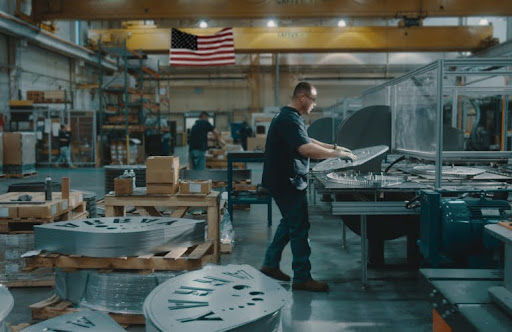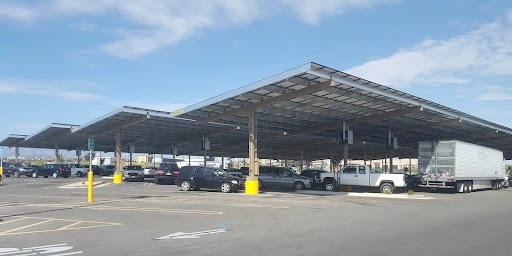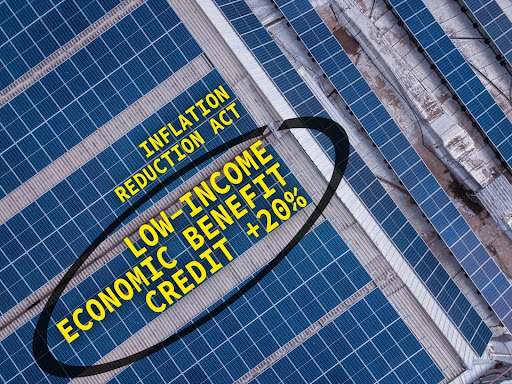As we step into a new year, the solar energy landscape is evolving rapidly, guided by legislative changes and noteworthy developments across the United States. In this edition of “The Solar Policy Scoop,” we delve into the key happenings that promise to shape the solar industry in January 2024. From proposed regulations impacting advanced solar manufacturing to groundbreaking zoning amendments in New York City, this blog provides an in-depth analysis of the recent changes that industry stakeholders need to be aware of.
IRA Advanced Solar Manufacturing Credit: Navigating New Regulations

Solar Manufacturing Credit
In Washington, D.C., the federal government’s issuance of proposed regulations under the Inflation Reduction Act (IRA) sets the stage for a transformative shift in the solar manufacturing landscape. Section 45X, introduced to encourage the production and sale of eligible components within the United States, encompasses solar and wind energy components, inverters, qualifying battery components, and critical minerals. These regulations aim to propel advanced manufacturing, but the implications and challenges require careful consideration by industry players.
NYC Embraces Solar Canopy Development: A Game-Changer

Solar Canopy Development NYC
New York City has emerged as a pioneer in promoting clean energy with the relaxation of zoning restrictions, unlocking 8,500 acres of parking lots for solar canopy development. By abolishing coverage and setback restrictions for rooftop solar installations, the city paves the way for an unprecedented expansion of clean energy projects. The potential for additional megawatts of solar energy production signifies a significant step towards a more sustainable and resilient energy future for the metropolis.
Low-Income Solar Bonus Credit Program: Overwhelming Response

Low-Income Solar Bonus Credit Program
In a remarkable show of support for solar energy in underserved communities, the IRS received an astonishing 46,000 applications within the initial 30-day window for the Low-Income Communities Bonus Credit Program. With a total generation capacity exceeding 8 GW, the response underscores the urgent need for policies that foster inclusive solar development and empower economically disadvantaged regions across the country.
Solar Powers Illinois: Uniting for Solar Advocacy
In Springfield, Illinois, a coalition of influential solar organizations has coalesced to form Solar Powers Illinois. The coalition’s primary goal is to champion the benefits of the Illinois solar industry, raising awareness and promoting solar energy’s value. In the wake of landmark state and federal legislation, Solar Powers Illinois seeks to inform and engage employers, workers, residents, schools, organizations, businesses, and elected officials about the myriad opportunities and advantages that solar energy offers.
Clean Electricity and Transmission Acceleration (CETA) Act: A Legislative Milestone

Clean Electricity and Transmission Acceleration (CETA) Act
House Democrats, led by Reps. Sean Casten (IL) and Mike Levin (CA), introduced the Clean Electricity and Transmission Acceleration (CETA) Act. This legislative proposal aims to streamline the permitting process and accelerate the development of transmission lines, enhance grid reliability, and facilitate the responsible deployment of renewable energy on public lands and oceans. The CETA Act stands as a testament to the commitment to a cleaner, more sustainable energy future.
Legislative Challenges: Sen. Marco Rubio’s Stand on IRA Solar Manufacturing Tax Credits
In Washington, D.C., Senator Marco Rubio (FL) introduced the Protecting Advanced American Manufacturing Act, aiming to restrict IRA solar manufacturing tax credits for companies with ties to adversary countries, particularly China. This legislative move is in anticipation of forthcoming guidance from the Biden Administration regarding the IRA’s 45X manufacturing production tax credit. The potential impact on the solar industry requires careful monitoring as the debate unfolds.
Aluminum Import Duties: A Potential Setback for Solar Manufacturing
The Department of Commerce is currently contemplating the imposition of anti-dumping and countervailing duties on aluminum extrusions from 15 countries, including major players like China, Mexico, Turkey, India, Italy, and South Korea. Given the extensive use of aluminum in solar manufacturing, such duties could significantly impact the cost and feasibility of solar projects, underscoring the interconnectedness of global trade dynamics with the solar industry.
Conclusion
As the solar industry navigates the dynamic policy landscape in January 2024, each development presents both opportunities and challenges. From groundbreaking zoning changes in New York City to the potential impact of proposed aluminum import duties, stakeholders must remain vigilant and adapt to ensure a resilient and thriving solar ecosystem. “The Solar Policy Scoop” will continue to track these developments, providing timely insights to empower decision-makers and enthusiasts alike on the path towards a sustainable energy future.